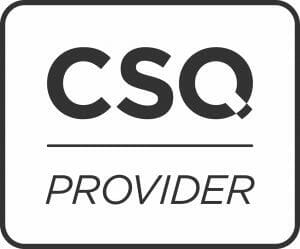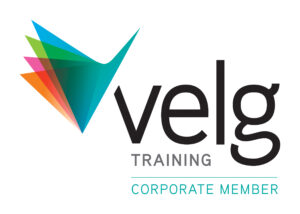About this Course
Course Description:
This three-day course covers the requirements for obtaining a national High-Risk Work Licence (Class LF) for forklifts.
Once you’ve successfully passed the training, and assessment and lodged your assessment with WorkSafe/SafeWork, you’ll be qualified to operate any type of forklift in Australia, including counterbalance, side loading, all-terrain, and truck-mounted forklifts, reach trucks, and high-reach forklifts.
If a participant requires a reassessment for a High-Risk Work Licence an additional $250.00 + GST reassessment fee will apply.
Location:
Public courses are available at our Salisbury, Ingleburn and Carrum Downs facilities.
Private training can be organised and conducted onsite if the following training and assessment requirements are met:
- A room with access to power, a blank wall for presentation, a projector screen or a large TV, table/s and chairs.
- Clear, flat operating area free from hazards.
- Forklift (in serviceable condition with no faults and operator manual present)
- 3 level pallet racking with three varied types of loads of minimum at a minimum of 250Kg
Request a quote for onsite training.
Course Outline
- Day 1: Introduction to Forklift Safety and Relevant Acts and Regulations
- Day 2: Practical Forklift Operation and Skills Building
- Day 3: High-Risk Work Licence Assessment
- Forklift training available in Sydney NSW, Melbourne VIC and Brisbane QLD
- Forklift onsite training available
- Nationally recognised
- Online booking available
The course is structured to provide foundational knowledge about forklifts and develop practical forklift skills. Each day covers specific aspects of forklift operation and works towards progressively improving forklift operating skills.
Upon passing your assessment, you will be issued a Statement of Attainment TLILIC0003 – Licence to operate a forklift truck. You then apply for your HRWL (Class LF) ticket through your local WHS authority. Typically, this needs to be done within 60 days of passing your High Risk Work Assessment.
Course Availability & Pricing
Please see our public course dates below. If there are no dates available or you would like to arrange a private course at your site or ours, then please select the ‘Private courses’ button.
Course Outcomes
Learning Outcomes
On completion of the course, participants will have gained the following skills and knowledge to:
- Plan Operations: Hazard management and consultation
- Pre-operational Inspections: forklift and associated equipment
- Shift Loads: Lifting at varying heights and travelling through obstacles
- Conclude Operations: Parking, securing the equipment and following site specific procedures
Outcomes
A nationally recognised Statement of Attainment TLILIC0003 – Licence to operate a forklift truck, and a High-Risk Work Licence (class WP) will be issued through the WHS authority in your jurisdiction. (SafeWork / WorkSafe)
Further Information
Forklift Class Licences
In Australia there are two different types of Forklift licences based on the class of the Forklift:
- LO License
An LO Licence is required if you want to operate a Load Shifting Order Picker or turret truck/VNA (Very Narrow Aisle truck). Note: the LO Licence will only qualify you to operate the above class of Forklift Truck.
- LF Licence
An LF License is required if you want to operate a Forklift Truck equipped with a mast and an elevating load carriage with fork arms (or other attachment).
The LF licence will allow you to operate any Forklift Truck, with no size restriction (excluding LO classified Forklift vehicles which require a separate LO License).
Forklifts covered under an LF License include:
- Counter balanced forklift truck
- Reach forklift truck
- Side loading forklift truck
- All-terrain forklift truck
- Truck mounted forklift truck
Once you have successfully completed the training course you can request a Forklift Licence (which will last for 5 years before requiring renewal).
Employment Opportunities for Forklift Drivers
Licenced Forklift drivers are in regular demand and this profession is on the rise.
This is largely due to continued growth in e-commerce and the number of industries that deal with building materials and heavy goods that can’t be lifted by people alone.
They are needed in a wide variety of areas and roles, such as (but not limited to):
- Warehousing and Storage for a range of companies (including large organisations like JD Sports, Amazon, DHL, etc.)
- Manufacturing, Transport and Logistics
- Shipping yard
- Airport Cargo Handling Agent/Freight in the container terminal industry
- Maintenance Fitter
- And many more
Benefits for Forklift Licence Holders in NSW & QLD
– Depending on the employer, work can often be flexible with options of full day, morning, afternoon or night shifts and optional overtime
– You can choose a job that is either indoors, outdoors or a mix of both
– Some companies will pay monthly bonuses on top of your regular pay if you reach set targets
– You will have good job security and plenty of advancement opportunities for your future career
Forklift Training FAQ’s
What is a TLILIC0003? (Licence to operate a forklift)
- TLILIC0003 is the national unit of competency for the Licence to Operate a Forklift Truck in Australia. It specifies the skills and knowledge required to operate a forklift safely and competently.
Who needs to complete the course?
- Anyone in Australia who wants to operate a forklift truck as part of their job must complete this course and obtain a forklift licence.
What are the prerequisites for enrolling?
- Participants must be at least 18 years old, have a basic understanding of English, and possess 100 points of ID as per the Work Health and Safety (WHS) regulations.
How long does the course take?
- The duration can vary between training providers but typically ranges from 2 to 3 days, including both theoretical and practical training components and the High Risk Work Licence Assessment (NAI)
What does the course cover?
- The course covers operating a forklift truck safely, including planning work, conducting routine checks, shifting loads safely, and shutting down and securing the equipment after completion of operations
Is there an exam?
- Yes, there is both a written test and a practical assessment to evaluate your understanding and ability to safely operate a forklift.
What happens if I fail the assessment?
- If you fail the assessment, you can usually retake it after 48 hours. However, policies on retakes, including any additional costs, vary by training provider.
How do I obtain my forklift licence after completing the course?
- Upon successful completion of the course, you’ll need to apply for a High Risk Work Licence through the relevant state or territory WHS regulator, submitting the necessary paperwork and paying any applicable fees.
How much does the course cost?
- Costs vary depending on the training provider and location but typically range from $300 to $600.
Can I operate any type of forklift with the licence obtained from TLILIC0003?
- This licence allows you to operate a forklift truck, equipped with a mast and an elevating load carriage with a pair of fork arms or other attachments. This licence class is not for an order picking forklift truck.
What is the validity period of the forklift licence?
- The High Risk Work Licence is usually valid for 5 years, after which it must be renewed.
Can I operate a forklift without supervision after completing the course?
- Yes, once you have successfully completed the course and obtained your forklift licence, you can operate a forklift without supervision, provided you comply with workplace safety regulations.
SafeWork/WorkSafe conditions of assessment:
- Applicants to be at least 18 years of age.
- Able to produce and meet the evidence of identity criteria as per SafeWork / WorkSafe identification requirements.
- Speak and understand English at a level to be able to participate in the training and assessment
Note: Verbal assessments can be arranged for applicants with writing and reading difficulties (extra charge applies)





